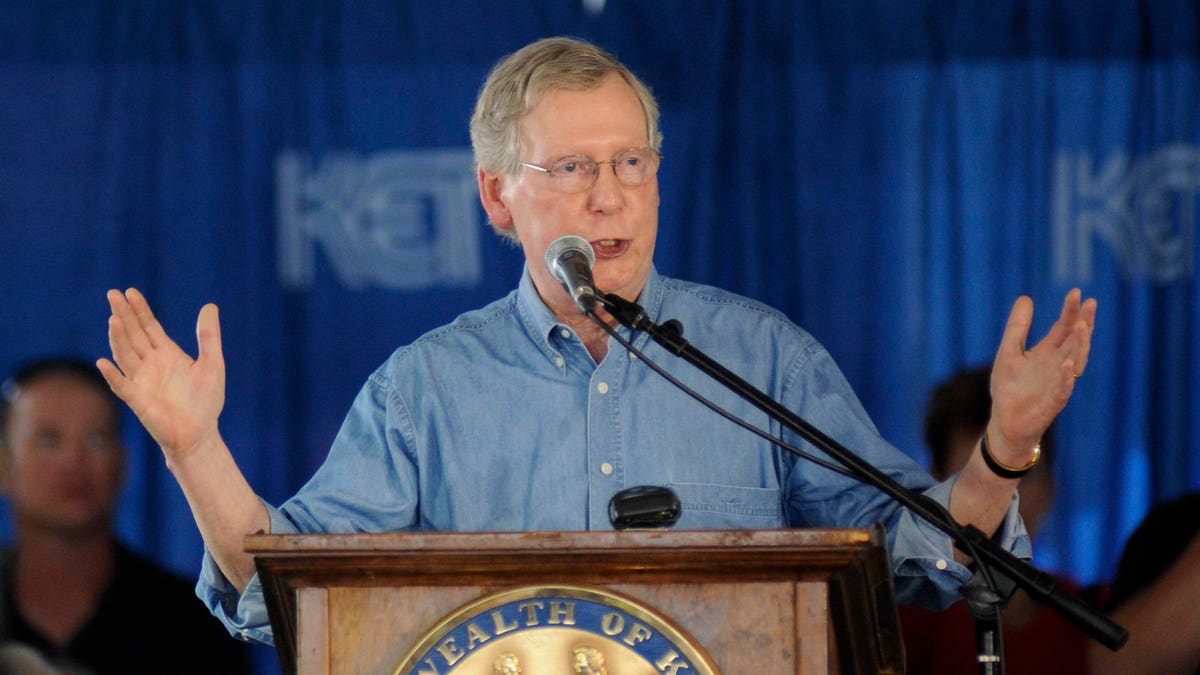
FILE: Aug. 3, 2013: Senate Minority Leader Mitch McConnell of Ky., during the 133rd Annual Fancy Farm Picnic in Fancy Farm, Ky. (AP)
Senate Majority Leader Mitch McConnell said Sunday that any Iran nuclear deal to which Secretary of State John Kerry agrees will be “a very hard sell in Congress.”
The Kentucky Republican made his remarks on “Fox News Sunday” amid news reports that the United States and Iran are close to a provisional agreement during one-on-one talks in Vienna.
“We already know (any deal) leaves Iran as a threshold nuclear state,” McConnell said.
Still, McConnell said, the deal will likely go forward even though the Republican-led Congress should be able to get 60 votes to pass a “joint resolution of disapproval,” considering President Obama can veto the bill with just 34 Senate votes.
“Democrats will likely have the same concerns,” he said. “I hope Democrats look at this objectively and say, ‘This is not good.’ ”
However, McConnell acknowledged the deal, which allows Obama to ease some sanctions, will “likely be approved and passed.”
Negotiations between Iran, the U.S. and five other countries to get Tehran to curb its nuclear program in exchange for sanction relief have been in the works for roughly two years.
The sides reached a framework agreement in April and reconvened in Vienna about two weeks ago with hopes of reaching a final pact, which supporters say would limit Iran’s capacity to create a nuclear weapon.
Iran says its nuclear program is not to develop such a weapon.
Among the sticking points is United Nations’ authority to inspect nuclear-related sites and the extent to which sanctions will be eased.
A senior State Department official on Sunday downplayed reports that the sides are near reaching a provisional deal.
“We have never speculated about the timing of anything during these negotiations, and we're certainly not going to start now -- especially given the fact that major issues remain to be resolved in these talks,” the spokesperson said.
Any such deal also would still have to be approved by the other countries -- Britain, China, France Germany and Russia.
McConnell said the alternative is to “ratchet up sanctions even further” because they are what brought Iran to the negotiating table.
And he expressed concern that the existing deal does not appear to address Iran’s ballistic missile capability and its involvement in supporting the regime in Syria in that country’s civil war.




